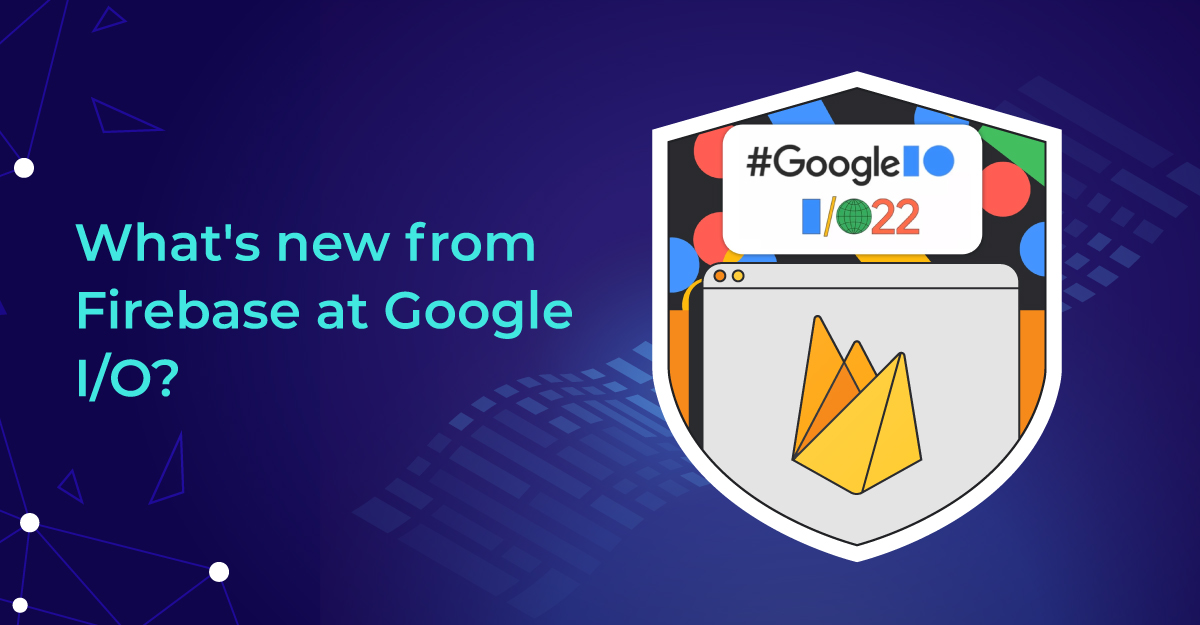Google Firebase is a platform that helps developers build, ship, and grow their mobile apps. It's made up of different products that can be used together or independently.
A Spectrum Of Capabilities
Firebase Analytics lets you track your users' behavior in real-time, including how they use your app, how often they open it, where they are when they use it, and more. This information can be used to decide what features to add to your app and how users engage with your product.
Firebase Remote Config lets you change the look or feel of your app without having to update it for each new release. You can use this to test out different designs or colors before deciding which one will work best for all users. You
can also use it to allow users who have opted into various types of content accessible only to those options instead of all possible choices within an app.
Firebase Crash Reporting tracks when crashes occur in an app so that developers can find out what went wrong and fix it before anyone else does--or at least know why their customers aren't using their product anymore! Firebase app development gives you access to these features with just one line of code. This means developers can focus on creating great apps instead of building the infrastructure that powers them.
Furthermore, Firebase's Cloud Messaging module allows you to send messages between devices within an app or across multiple apps simultaneously without having to deal with network latency issues or bandwidth limitations associated with traditional SMS messaging technologies like IP (Internet Protocol) Multimedia Subsystem (IMS) or cellular networks' SMS gateways). You can use this feature to send push notifications about updates or changes within your app that are important enough for users to know about immediately (such as new product announcements) and many more.
As a cloud-based service, Google Firebase app development allows you to focus on developing your app instead of maintaining servers or other infrastructure. From there, you can access a variety of features, including:
- Analytics (e.g., user behavior)
- Dynamic Links (e.g., deep linking)
- Authentication (e.g., sign in with Google)
- Realtime Database
What's new from Firebase at Google I/O 2022?
Firebase app development has been around for a while, but it's not just a thing you used in the past. The new Firebase app development at Google I/O 2022 has some exciting new features that will help you get your app off the ground.
Cloud Firestore
The first feature is Cloud Firestore: a new service that provides real-time data synchronization between clients and servers. Google Cloud Firestore is a cloud-native NoSQL document database for mobile and web app development. It's easy to use, high performance, and scalable.
Cloud Firestore is a fully managed, no-hassle database solution that you can use to store user data or any other app data you need. Using the REST API or Google's client library for JavaScript, you can store and query the same data across multiple clients, from phones to web browsers.
Cloud Firestore is an open-source project maintained by Google that allows you to build applications on top of it and customize them for your needs. Cloud Firestore provides a simple API that enables you to create documents, collections, and queries that can be used as your data source when building your app.
Cloud Firestore uses Firebase Authentication so that only authenticated users can access their private data. All data in Cloud Firestore is encrypted at rest and in transit between clients and servers using HTTPS/SSL encryption.
Cloud Functions for Firebase
The second feature is Cloud Functions for Firebase app development: this gives developers a way to add logic to their app without having to write code every time they want something done when certain events happen (for example, when someone submits an image).
Cloud Functions for Firebase are functions that can be run on Firebase's infrastructure. You can write them in JavaScript, and you do not need to know any other languages to use them.
Cloud Functions for Firebase app development are built on top of the Firebase Realtime Database and Cloud Storage. Once you create a function, it can be triggered by events such as changes to data in your Realtime Database or a file being uploaded to Cloud Storage. You can also trigger functions from other services such as Slack or Twilio.
When you write a function, you divide the code into two parts: the HTTP request listener and the HTTP response generator. The HTTP request listener listens for an event that triggers the function, like when someone uploads an image to Cloud Storage or deletes it. When this happens, it sends a request to your serverless function over HTTPS and receives back a response through the HTTP response generator.
You may have noticed that the above sentence said "serverless". That's because Cloud Functions for Firebase don't require any servers! It's all done on Google's infrastructure instead of yours—all you have to do is write some code!
Cloud's Test Lab
Finally, there's Cloud Test Lab for Firebase, which lets you test your app on thousands of real devices in parallel and automatically deploy your updates when everything looks good!
Cloud Test Lab for Firebase app development is a service that helps you build, test, and ship your apps faster. Cloud Test Lab works with your existing Firebase account to offer a seamless experience that allows you to perform manual testing across hundreds of real devices, run automated tests, and receive test results in the cloud.
Cloud Test Lab for Firebase app development provides a set of tools for testing your apps on real devices in the cloud. Whether you need to manually test new features, run regression tests, or build automation scripts, Cloud Test Lab helps you use the right tool for the job.
With the Cloud Test Lab for Firebase app development, you can run tests on your app in the cloud to help identify and prevent issues before they happen. You can also use it to run test versions of your app on real devices to get feedback from real users. The Cloud Test Lab will automatically collect logs and screenshots from your test runs, so you can dig into what happened when it happened and why it happened.
Cloud Test Lab for Firebase has two parts:
- The first part is an API that allows you to write your own scripts in any language. You can also use our Python library if you want something more powerful than just raw HTTP calls.
- The second part is a web user interface that allows you to see how each test runs on each device, how long it takes to run the entire test suite, and how many devices are being used at any given time.
Cloud Test Lab makes it easy to find and use the right device by providing:
-
A single console for all your testing needs—from manual exploratory tests to automated testing scripts
-
A unified view of all of your test results in one place
-
An easy way to share your test results with other teams
Bottom Line
Firebase app development is a great tool for building mobile apps that are fast, secure, and simple to maintain. With the release of Firebase on GCP, you can now use Firebase in conjunction with other services like Google Cloud Pub/Sub and Google Cloud Storage for even more powerful ways to build your app.
Firebase is an amazing platform for developers, and Google's commitment to making it better has never been stronger. From the new features announced at Google I/O 2022 to the new investment in Firebase as a whole, we're excited about what's coming next.



